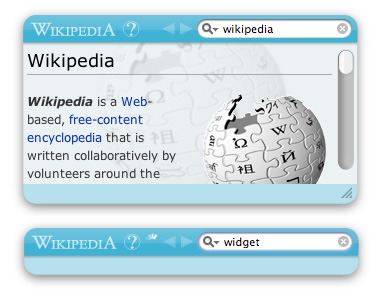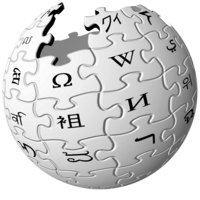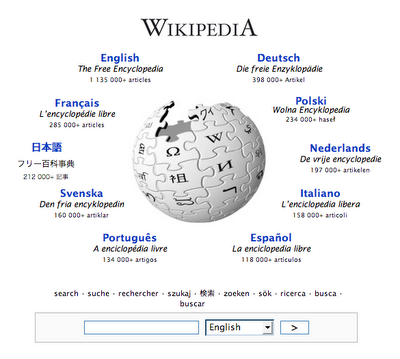
I have come across an interesting essay written for Edge, by computer scientist and digital visionary Jaron Lanier. The title is:
DIGITAL MAOISM: The Hazards of the New Online Collectivism
Here are some excerpts, starting with the opening of the article:
(JARON LANIER:) My Wikipedia entry identifies me (at least this week) as a film director. It is true I made one experimental short film about a decade and a half ago. The concept was awful: I tried to imagine what Maya Deren would have done with morphing. It was shown once at a film festival and was never distributed and I would be most comfortable if no one ever sees it again.
In the real world it is easy to not direct films. I have attempted to retire from directing films in the alternative universe that is the Wikipedia a number of times, but somebody always overrules me. Every time my Wikipedia entry is corrected, within a day I'm turned into a film director again. I can think of no more suitable punishment than making these determined Wikipedia goblins actually watch my one small old movie.
Twice in the past several weeks, reporters have asked me about my filmmaking career. The fantasies of the goblins have entered that portion of the world that is attempting to remain real. I know I've gotten off easy. The errors in my Wikipedia bio have been (at least prior to the publication of this article) charming and even flattering.
Reading a Wikipedia entry is like reading the bible closely. There are faint traces of the voices of various anonymous authors and editors, though it is impossible to be sure. In my particular case, it appears that the goblins are probably members or descendants of the rather sweet old Mondo 2000 culture linking psychedelic experimentation with computers. They seem to place great importance on relating my ideas to those of the psychedelic luminaries of old (and in ways that I happen to find sloppy and incorrect.) Edits deviating from this set of odd ideas that are important to this one particular small subculture are immediately removed. This makes sense. Who else would volunteer to pay that much attention and do all that work?
The problem I am concerned with here is not the Wikipedia in itself. It's been criticized quite a lot, especially in the last year, but the Wikipedia is just one experiment that still has room to change and grow. At the very least it's a success at revealing what the online people with the most determination and time on their hands are thinking, and that's actually interesting information.
No, the problem is in the way the Wikipedia has come to be regarded and used; how it's been elevated to such importance so quickly. And that is part of the larger pattern of the appeal of a new online collectivism that is nothing less than a resurgence of the idea that the collective is all-wise, that it is desirable to have influence concentrated in a bottleneck that can channel the collective with the most verity and force. This is different from representative democracy, or meritocracy. This idea has had dreadful consequences when thrust upon us from the extreme Right or the extreme Left in various historical periods. The fact that it's now being re-introduced today by prominent technologists and futurists, people who in many cases I know and like, doesn't make it any less dangerous...
I think it's a scary idea that people you don't even know can define you and your work for purposes that suit THEM, regardless of how it affects you or regardless of if the information is really true. If the collective or the "hive" decides you are a filmmaker, then you are, regardless of what you have to say about it? Being called a filmmaker when you aren't isn't the biggest tragedy to be sure, but think about how many other erroneous ways an individual or one's work could be ill defined by people with alterior motives?

The author also laments the loss of individual personality and authorship when information is taken out of the context the author published it in, and used as content by aggregator websites:
...Accuracy in a text is not enough. A desirable text is more than a collection of accurate references. It is also an expression of personality.
For instance, most of the technical or scientific information that is in the Wikipedia was already on the Web before the Wikipedia was started. You could always use Google or other search services to find information about items that are now wikified. In some cases I have noticed specific texts get cloned from original sites at universities or labs onto wiki pages. And when that happens, each text loses part of its value. Since search engines are now more likely to point you to the wikified versions, the Web has lost some of its flavor in casual use.
When you see the context in which something was written and you know who the author was beyond just a name, you learn so much more than when you find the same text placed in the anonymous, faux-authoritative, anti-contextual brew of the Wikipedia. The question isn't just one of authentication and accountability, though those are important, but something more subtle. A voice should be sensed as a whole. You have to have a chance to sense personality in order for language to have its full meaning. Personal Web pages do that, as do journals and books...
...The Wikipedia is far from being the only online fetish site for foolish collectivism. There's a frantic race taking place online to become the most "Meta" site, to be the highest level aggregator, subsuming the identity of all other sites.
The race began innocently enough with the notion of creating directories of online destinations, such as the early incarnations of Yahoo. Then came AltaVista, where one could search using an inverted database of the content of the whole Web. Then came Google, which added page rank algorithms. Then came the blogs, which varied greatly in terms of quality and importance. This lead to Meta-blogs such as Boing Boing, run by identified humans, which served to aggregate blogs. In all of these formulations, real people were still in charge. An individual or individuals were presenting a personality and taking responsibility.
These Web-based designs assumed that value would flow from people. It was still clear, in all such designs, that the Web was made of people, and that ultimately value always came from connecting with real humans.
Even Google by itself (as it stands today) isn't Meta enough to be a problem. One layer of page ranking is hardly a threat to authorship, but an accumulation of many layers can create a meaningless murk, and that is another matter.
In the last year or two the trend has been to remove the scent of people, so as to come as close as possible to simulating the appearance of content emerging out of the Web as if it were speaking to us as a supernatural oracle. This is where the use of the Internet crosses the line into delusion...
(Bold emphasis on above excerpts is mine) Lanier has some other interesting insights into such things as the popularity of prematurely embracing the concept of AI (artificial intellegence), and the resulting lowering of standards; about the collective "hive" mind vs the individual, the dangers inherent in that and what might be done about it. Some good food for thought, as so many of us these days turn to the internet for information.

Related Link:
Wiki page entry for Jaron Lanier
3 comments:
This is an intriguing post. I have often wondered how reliable wikipedia was when I started to notice how it really worked. I have used them as a source many times. And sometimes the info seems good and sometimes it seems biased. Probably the best feature is the links though.
I liked the article because it brought to light some aspects of collective sources that I had not considered.
I have used and will continue to use Wikipedia. As you say, it provides many links to it's sources, which is reasuring. But articles like this can make us aware of it's possible weaknesses and shortcommings, and how they might be avoided.
The biggest danger would probably be people assuming that a collective resource is always more accurate and reliable than an individual one. I really like the way this author has made clear that we dare not assume that, and why.
I totally agree!!
Post a Comment